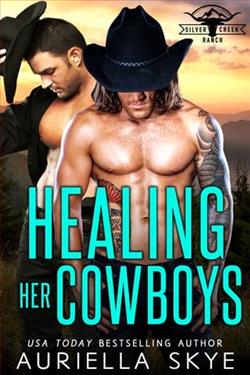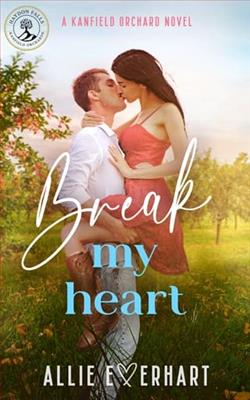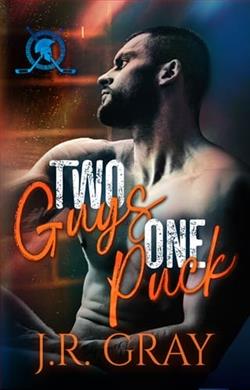Page 18 of The Side Road
‘I just boiled it and peeled it.’
‘You peeled an egg!’ She stared at him. ‘Are you kidding? I’ve never seen anyone peel an egg. How is it even possible to peel an egg?’
‘Oh, it’s possible.’
‘That’s amazing.’
‘It’s just an egg.’
Oliver began stacking the dirty dishes in the dishwasher. ‘It’s Saturday. Don’t you have sports? Has soccer started?’
‘Nan missed the sign-up date. But I’m in the Sock Club. I need two fifty-gram balls of wool…or maybe just one, one-hundred-gram ball. Four-ply. A pair of double-pointed needles. And a twenty-three-centimetre circular needle – two millimetres in size.’
‘Write that down.’
‘Wait, make that two-point five needles. No, wait, get me both sizes. I have to make another yarn sampler.’ She considered her father. ‘We don’t use the dishwasher. It uses too much water.’
He continued stacking the used dishes.
‘I’m meeting Mary at the craft shop. You can drop me there while you do the shopping – that’s what Nan did.’
‘Works for me. Start making a list of food.’ He closed the dishwasher and switched on the machine. ‘Honey, where’s my car?’
‘Nan lost it.’
‘In a bet?’
‘On the side of the road. She couldn’t remember where she parked. Leo said he saw it on the other side of the bridge near Short Street.’
‘Okay, that’s our first stop.’
‘The bus stops on River Street. Or we could get a taxi.’
‘We’ll be walking.’
She raised her head. ‘Why?’
‘Because we have legs.’
Thirty minutes later,they found the Citroën parked two streets north of Short Street under a fig tree. The vehicle looked abandoned. Dirt and bird droppings covered the roof and windscreen. Leaves and twigs filled the grills.
With a shake of his head, Oliver gazed at the sky. ‘Why?’
‘Dad, it’s just a car,’ Tash said.
‘It’s notjust a car. It’s one of the most beautiful cars ever made.’
‘Whatever.’ As she tried the door handle, Tash rolled her eyes. The car was locked with the keys still in the ignition. Oliver pulled a spare set from his pocket and unlocked the doors. They climbed inside and slid across the bench seat. When Oliver started the engine, gracefully, the car ascended, the rear rising first, followed by the front end – the vehicle had levitating suspension.
‘Happy days,’ he said, checking the petrol gauge; half a tank.
It was a smooth ride into town; the car glided over every pothole and bump in the unmaintained road. They parked at the far end of the main street, beside the Thyme Out community garden and rotunda, which commemorated the soldiers who lost their lives at Gallipoli during the First World War.
On the footpath, Tash tugged on her father’s arm. ‘I’m going to change my book at the mobile library. Meet me at the craft shop at eleven.’
After crossing the road, Tash headed for the bridge that would take her over the river. With no designated pedestrian path, Oliver watched until she reached the far side, then he turned and surveyed the main street.
It was the discovery of gold in the 1850s that marked the beginning of Eagle Nest. The rapid growth and prosperity that followed shaped the town’s unique layout. Narrow laneways, once tracks used by horses and bullocks, still meandered through the charming riverside settlement of timber and stone buildings. As the boom faded, Eagle Nest, like many gold rush towns, had to reinvent itself. Now, itsmain source of income was tourism, but with a declining population, limited services, and poor infrastructure, the township struggled.















